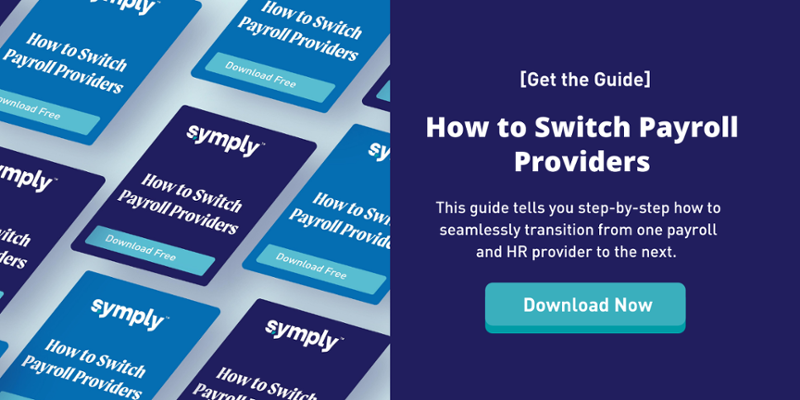HR News & Education
Check out the latest news and resources for small businesses covering topics such as human resources, employee engagement, and management.
What HR Policies Should a Small Business Have?
Human resources is an aspect of business that is most commonly associated with larger companies. These big organizations that employ a large number of workers typically have so many administrative functions and employee-related needs to attend to that they have their own designated HR departments.
However, just because your business isn’t quite that big, it doesn’t mean there aren’t some HR policies that you should be following.
If you’re a small business owner, you should know that you can benefit from some clearly defined HR practices to help keep yourself organized and protected and to ensure that you’re providing your employees with a safe and healthy working environment.
In order to help you do that, we’ve created this list of simple but useful tips for establishing effective HR policies.
Healthy and Safety Policies
There’s a laundry list of reasons why you want to have clearly defined policies regarding health and safety at your small business, chief among them being the health and safety of you, your employees, and your customers.
Liabilities, codes, and regulations aside, you should consider the safety of your workplace of the utmost importance for the mere fact that there’s a chance that lives depend on it.
Determine a clear protocol for what to do in the event of any and all emergencies. That includes injuries, fires, and any other disasters. Things like drug and alcohol policies are also closely connected to health and safety, so make sure to define those clearly as well. Once you’ve done that, document it all.
Policies Regarding Wages and Benefits
Few things can inspire high turnover rates more than a business that handles its payroll poorly, and there aren’t many things that can cause greater headaches for management than ill-defined benefits.
Detail both of these things clearly. That includes paydays and pay periods, overtime pay, payroll deductions, and anything else that can be clearly defined in writing for your terms of compensation.
As for benefits, you’re going to want to put into writing just what kind of package your business offers, whether it’s vacation, paid leave, sick days, personal days, medical and dental, retirement and 401(k), mileage reimbursement, or any other perks that come with being on your payroll.
This approach can save both you and your employees a great deal of strife and confusion.
Time Off Policies
You’re going to want to document exactly what your policy is for vacation days and sick days, regardless of whether you offer paid time off for either of them.
This documentation includes how many days off an employee is allowed and the protocol for securing that time off. A written policy not only saves you from dealing with unexpected absenteeism; it also makes things easier for your employees when the time comes for them to take a few days off.
Disciplinary Policies
Of course, you’re going to want to lay down some ground rules for all of your employees, but documented disciplinary policies can prove a lot more useful than you might think.
Should you have to dismiss one of your workers for violating your terms of employment, you want to make sure that those terms are clearly detailed in order to avoid any legal retaliation.
Disciplinary policies also allow for a shared concept of fairness in the workplace. If you’re doling out disciplinary action off the top of your head, then you leave yourself open to an imbalanced approach, and you also leave the door open for bias to creep in.
If you create a disciplinary guidebook and then follow that guidebook to the letter, there is no room for human error, or at least a whole lot less room.
Cell Phone and Internet Policies
At this point, there’s pretty much no getting around some of the issues that come from cellphones in the workplace. However, what you can do is create a detailed policy on cell phone and internet usage so that you at least stand a chance at curbing the major distractions your employees are carrying in their pockets.
Lateness and Absenteeism Policies
Small businesses feel the effects of a late or absent employee far more than bigger businesses. That missing person can throw the entire system off and wind up putting undue stress onto those employees who managed to show up on time or at all.
Frequently, it’s important to think like a human being first and a boss second, but there are limits to that philosophy, and you’re going to need to define those limits very clearly so that all of your employees know the rules of the game.
What your policy ultimately looks like is up to you, but a common method for handling lateness and absenteeism is a strike system. This approach allows for plenty of leeway and shows that you understand your employees are only human, but it also makes the importance of showing up on time very clear.


